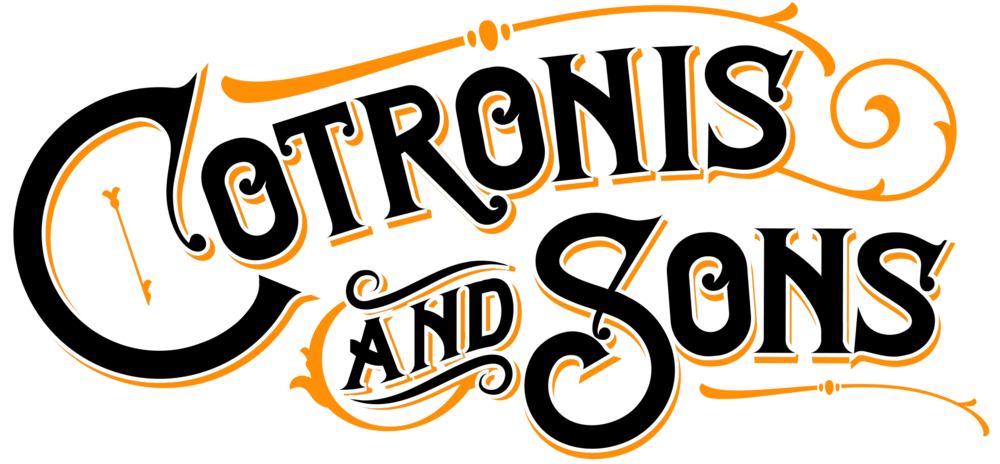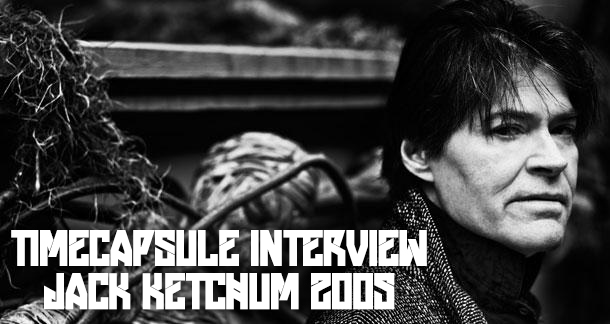This interview was probably done sometime in 2004-2005. I was 21 years old at the time and I ran a fanzine called CARNIVAL MACABRE. I interviewed Jack Ketchum for it, but ended up selling the interview to DARK WISDOM, for those of you who remember the now defunct magazine. I didn’t know it was included for years, until I figured it out and contacted the folks over at DARK WISDOM, who graciously mailed me copies and paid me for the interview. They’re nice people.
Anyway, I’m including it here without edits. It probably ain’t great, but Jack had some great answers.
Jack Ketchum has been one of my favorite writers for quite a while now, since reading ”Girl Next Door” in the Greek translation(by Oxy Publications) and was blown away by it. Up until then, my diet consisted of supernatural horror novels( you all know what I’m taking about, it’s what I like to call ”mainstream horror”), and this book opened up a whole new world to me. A much darker world, so to speak. I can only be thankful for that and present you with an interview with the man himself.
Jack Ketchum is the pseudonym for a former actor, singer, teacher, literary agent, lumber salesman, and soda jerk — a former flower child and baby boomer who figures that in 1956 Elvis, dinosaurs and horror probably saved his life. His first novel, Off Season, prompted the Village Voice to publicly scold its publisher in print for publishing violent pornography. He personally disagrees but is perfectly happy to let you decide for yourself. His short story The Box won a 1994 Bram Stoker Award from the HWA and his story Gone won again in 2000, and he has written eleven novels, the latest of which are Red, Ladies’ Night, and The Lost. His stories are collected in The Exit At Toledo Blade Boulevard, Broken on the Wheel of Sex, and Peaceable Kingdom.
George Cotronis: How much of the real ”you” is in your books? Were any of them inspired by personal experiences, or have some basis in reality?
Jack Ketchum: Sure, I draw on personal experiences a lot. THE GIRL NEXT DOOR is almost a memory-play of what it was like to grow up in New Jersey when I did — minus, I hasten to add, the plot. SHE WAKES used a lot of what I saw and did in Greece. In PEACEABLE KINGDOM there’s a story called AMID THE WALKING WOUNDED which was about my nosebleed from hell and another called THE HOLDING CELL which was about my first — and only, thank god — DUI arrest. I could go on. But beyond that most of my stuff is reality-based. Something I’ve read about or heard about second-hand that triggers a story.
GC: As a horror writer, you attempt to scare us. What are you afraid of? What was your biggest childhood fear?
JK: When Jeff Gelb was preparing FEAR ITSELF — a very fine anthology by the way — he asked us all to write what scared us personally, not what we thought would scare somebody else. I raised my hand like a kid in class and said, “is anybody doing snakes??” Hence the story of the same name again collected in PEACEABLE KINGDOM. I refer you to that one for early childhood fears — and I used a number of personal experiences there too. But I was also afraid of practically everything as a kid. From The Bomb to the bully up the goddamn street.
GC: Most of the stuff you write is rather heavy, or right down depressing for some. Are you always in that state of mind? Going around holding a gun to your head?
JK: Hey, wait a minute. I write some pretty funny shit as well sometimes. Think of the stories in BROKEN ON THE WHEEL OF SEX for instance. Though now that I think of it, most of that, funny or not, is probably basically depressing too. I guess the answer to your question is another question. What the fuck kind of world are you living in that I don’t know about?
GC: Pretty much the same world. It was a question my friends asked me when I made them read your books. I now have no friends. I know that you have a lot of influences and a wide scope in reading, but who would you say where the writers or books that influenced early on in writing?
JK: Good god, they’re legion. Very earliest influences off the top of my head would be comic books — pre-comic-code weird stuff and Classic Comics especially — then short stories by Bloch, Bradbury, Matheson, Sturgeon, Lovecraft, Derleth, Dahl and among the novels, DRACULA, JEKYLL AND HYDE, FRANKENSTEIN, anything by Mickey Spillane, PEYTON PLACE, HARRISON HIGH, A STONE FOR DANNY FISHER, BLACKBOARD JUNGLE, THE AMBOY DUKES, plays by Tennessee Williams, Shakespear’s tragedies (I read them with the Classic Comics on one side of the desk and the text on the other early on), Edith Hamilton’s book on Greek myths, Roy Chapman Andrews’ ALL ABOUT DINOSAURS and anything else I could get my hands on the subject, e.e.Cummings’ poetry, and cheap sensational paperback lit of every kind. Oh, yes, and MAD, CRACKED, and FAMOUS MONSTERS OF FILMLAND. That do for starters?
GC: You don’t usually write supernatural horror (except for SHE WAKES). Why is that? Would you say that the horror that comes from humanity itself scares us more than things that go bump in the night?
JK: There are people who do bump in the night better than I do. Wait, that didn’t come out right. I mean, there are people who write supernatural much better than I do. So I tend to leave it mostly to the masters. Though SHE WAKES and some of my stories occasionally go there my forte seems to be reality and what scares me therein.
GC: How important is music to your writing? Do you listen to music when writing or is it otherwise involved in the process?
JK: I can’t listen to anything while I’m writing. Even my cats distract me. I’m envious of painters and other writers I know who can. I need silence and a blank wall. A phrase of music will often pop into my mind and I’ll use it in a piece but if I’m actually listening to music at the time, all I can do is listen. Maybe it’s because I was a singer once. Music still grabs all of my attention even if it’s terrible.
GC: Being criticized constantly regarding your subject matter must be hard. How much exactly does it affect you?
JK: I’m really not criticized constantly. Not at all. If that’s going on somewhere I’m not hearing it. For the most part people seem to get what I’m driving at. What criticism I have had hasn’t effected me much at all. It’s not that I’m particularly brave. It’s just that the only way I know how to do a piece is the way it occurs to me to do it. Then I just let it go where it goes.
GC: Of all your books, which one do you think is the hardest on the reader? More shocking?
JK: From readers’ comments I’d say three. THE GIRL NEXT DOOR, OFF SEASON (UNEXPURGATED EDITION in particular) and RIGHT TO LIFE. Those are the ones people have said to me, sorry I can’t go there, most often. But also STRANGLEHOLD aka ONLY CHILD because of the child-abuse factor.
GC: What, in your opinion, is most important, or what technique do you use to strip the reader of his mental defenses and scare or provoke similar strong emotions in him?
JK: I first try to scare myself. If I can do that successfully it usually seems to translate to the reader. But it’s the same thing with portraying any emotion. First you gotta move yourself. Then you get that feeling under control so it’s not just wild babbling and state it well — that’s learned technique — it’s a mix of feeling and self-control.
GC: Are you writing anything lately? What projects are you involved with?
JK: I just finished a story for Nanci Kalanta’s Horrorworld site which will be out in November — my first short story to be debuted on the net — and I’ve recorded two stories on CD, FOREVER and FATHER AND SON, for Borderlands’ DARK VOICES series. As we speak I’m roughing out a nonfiction piece for Asian Cult Cinema on Takashi Ishii’s NEW FLOWER AND SNAKE. Then there’s this novel thing hovering in the background.
GC: How come you were drawn to horror fiction in the first place? What was your first brush with it so to speak?
JK: Where I grew up, the woods were dark at night and filled with fear and pleasure…



